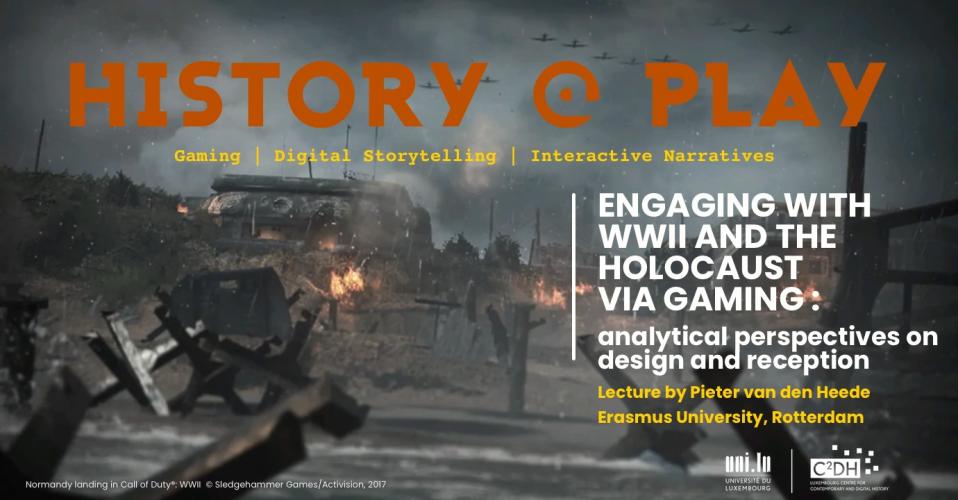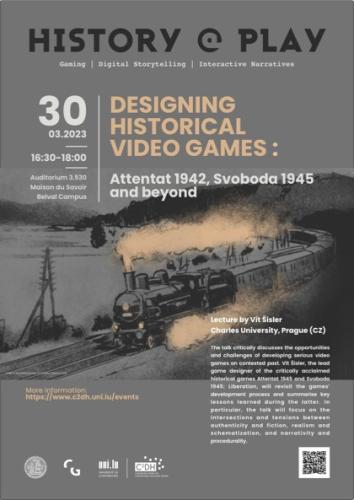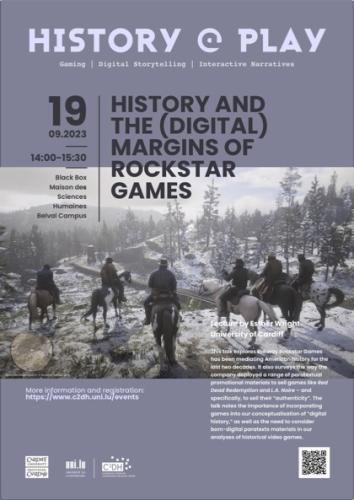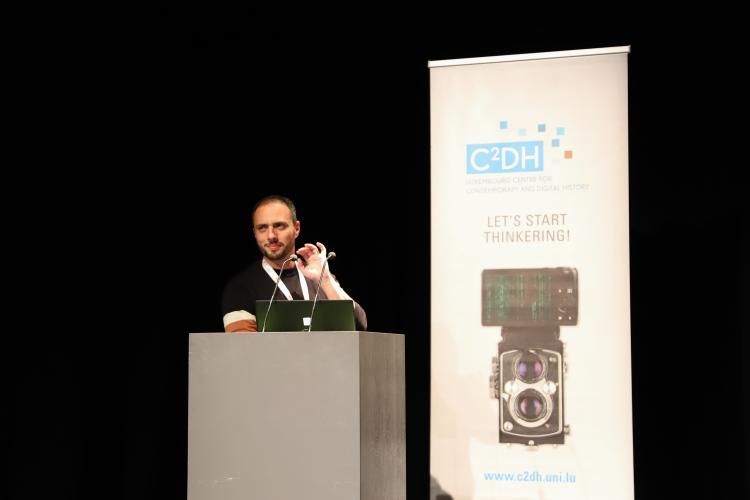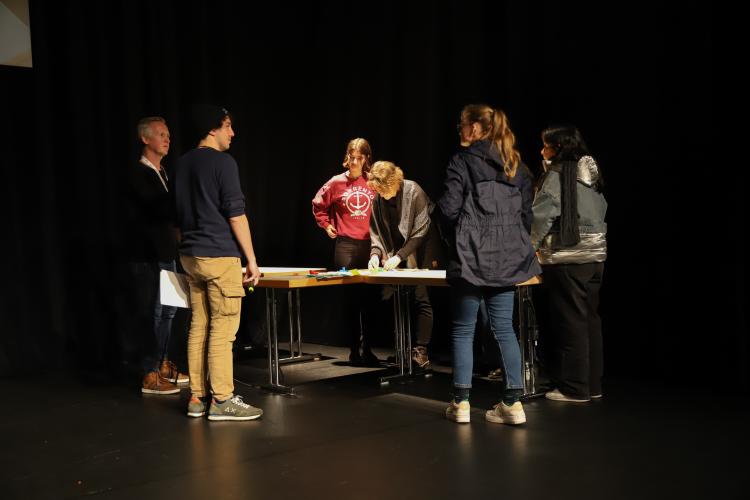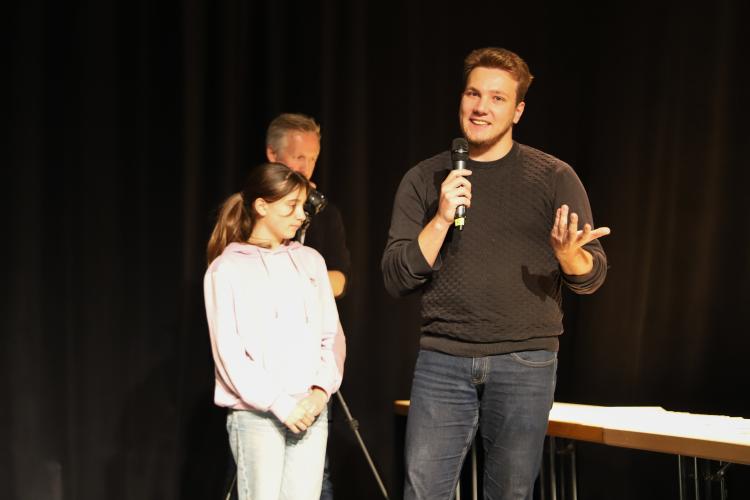
As Camarda says, “I’m interested in how academics can exploit the potential of video games as a unique medium for communicating history, making it more interactive, participatory, multi-vocal and emotionally compelling.” It is important to note that this is different from a trivialised notion of gamification, which involves using gaming elements in other areas of activity, such as for marketing strategies. “On the contrary, it’s about exploiting the affordances of a particular medium, seeing how game mechanics can translate specific historical processes and convey meaning not only through the context and content but also through gameplay,” she explains.
Camarda’s activities focus on theoretical research, experimentation and outreach. Her research involves investigating historical representations in digital worlds and the construction of authenticity and accuracy in video games. She also works with developers and other professionals in the field to produce historical video games. Through her outreach, she has helped organise events to engage the public in the debate surrounding these topics.
History@Play, launched in 2022, is a lecture series that brings in game designers, academics and industry experts to discuss these concepts. The 2023 series included a wide range of speakers and participants. In February, Pieter Van den Heede, a lecturer and researcher in the history department at Erasmus University Rotterdam, discussed how gaming can be used to engage with World War II and the Holocaust. In March, renowned game designer and scholar Vít Šisler from Charles University in Prague shared his thoughts on the award-winning games Attentat 1942 and Svoboda 1945: Liberation, to which he contributed as lead designer. In May, the focus turned to video game worlds as digital public history spaces with a lecture given by Joanna Wojdon, Professor of History at the University of Wrocław, Poland. In September, Esther Wright, Lecturer in Digital History at Cardiff University in Wales, UK, spoke about the way in which major video game publisher Rockstar Games employs notions of historical authenticity in its marketing strategies. Finally, in November, Clarissa J. Ceglio, Associate Director of Research at Greenhouse Studios and Associate Professor of Digital Humanities at the University of Connecticut, talked about Beyond Nuremburg, a VR quest game that involves collecting, analysing and contextualising primary sources related to the Nuremberg Trials and the Holocaust.
In November, there was also an exciting Forum Z event held at Rotondes in Luxembourg City. Organised in partnership with the cultural centre, as well as the Game On convention and the BTS School of Game Programming and Game Design, the event offered a wide variety of activities, including a VR tour of the Notre-Dame cathedral prior to the April 2019 fire (courtesy of Ubisoft). Participants could also attend a series of talks by industry professionals, designers and scholars including Deborah Papiernik, Senior Vice-President at Ubisoft; renowned game scholar and educator Jeremiah McCall; Nick Webber, Director of the Centre for Media and Cultural Research at Birmingham City University and co-founder of the Historical Games Network; public historian Marie-Paule Jungblut; film and media studies scholar Johannes Pause; and Emmanuel Guardiola, industry veteran and professor at the Cologne Game Lab. This Forum Z also included a unique workshop and competition during which teams learned the ropes of game design and created games of their own, with the top team winning a prize. A range of historical video games were also available for visitors to test out, including The Oregon Trail, Discovery Tour: Ancient Greece, and several others.
In 2023, Camarda, along with colleagues Jean Botev and Claude Ohlhoff, published a paper presenting the Rallye Platform, “a software ecosystem that enables various mobile location-based serious games such as digital treasure hunts.” The platform was developed in collaboration with the University’s VR/AR Lab to support two major multimedia exhibitions: “Légionnaires” at the Musée Drai Eechelen and the “Minett Stories Rallye” for the exhibition “Remixing Industrial Pasts: Constructing the Identity of the Minett”, part of Esch2022 – European Capital of Culture. “This type of location-based game can… offer a variety of possibilities for developing digital cultural heritage projects, strengthening the connection between the landscape and its stories while allowing players to discover history through an interactive experience that is both entertaining and educational,” the authors note.
Looking ahead, there are plans over the next three years for the C2DH to be involved in a new project with the Centre Cinqfontaines, a former Nazi internment site recently transformed into a place of remembrance and educational centre. Funded by the Œuvre Nationale de Secours Grande-Duchesse Charlotte, the project is still in its early stages. An immersive storytelling experience will give the public the opportunity to learn more about the history of the site and the Nazi occupation of Luxembourg during WWII, while also providing an insight into the work of historians who collect and interpret oral history testimonies and primary sources.
More about History@Play
Project leader: Sandra Camarda.
Funding: University of Luxembourg, Œuvre Nationale de Secours Grande-Duchesse Charlotte.
Media coverage:
- "Spielekultur zum Anfassen / 'Game on – Lëtzebuerg spillt' verwandelte die Rotondes in ein wahres Spieleparadies." Tageblatt, 6 November 2023.
- KIEFFER, Sophie. "Game On aux Rotondes : les jeux à l’honneur tout ce week-end." Le Quotidien, 6 November 2023.
- WINTER, David. "Zwee Deeg "Game On" fir d'Fans vu Briet- a Videospiller." RTL Lëtzebuerg, 3 November 2023.
- "3rd 'Game On' Event to Combine History & Gaming at Rotondes", Chronicle, 28 October 2023.
